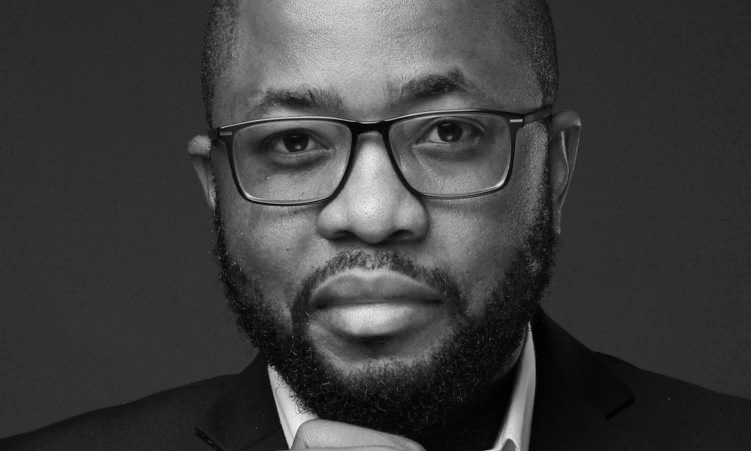The Democratic Republic of Congo (DRC) has faced persistent conflict for decades, particularly in its eastern regions, where armed groups, including the M23 rebels, continue to operate.
Accusations of Rwandan and Ugandan involvement in supporting these rebels and violating Congolese territorial sovereignty have further complicated the crisis.
A key factor perpetuating instability is the illegal exploitation of the DRC’s minerals, particularly coltan, cobalt and gold, which are vital to global supply chains.
Reports suggest that Western corporations, through direct and indirect involvement, benefit from resource exploitation while millions of Congolese civilians suffer from displacement and violence.
This article examines the factors sustaining the prolonged conflict, the role of Rwanda, Uganda and international corporations in exacerbating the crisis and whether the persistent instability is deliberately maintained for economic and geopolitical gains.
WHY’S THE WAR NOT ENDING?
The M23 rebel group has led to significant instability in eastern DRC.
M23, composed primarily of Congolese Tutsis, claims to be fighting for the rights of its community but has been accused of committing human rights violations, including massacres, sexual violence and forced displacement.
The United Nations has presented evidence suggesting Rwanda has been providing military and logistical support to M23 (UNSC, 2023).
The DRC government has accused Rwanda of destabilising the country and exerting influence over its resource-rich eastern provinces.
Rwanda has also been accused of directly deploying its troops in DRC territory. Uganda too has been implicated in supporting rebel factions and benefiting from the illicit trade of minerals from eastern DRC.
Despite the International Criminal Court’s ruling that Uganda looted DRC resources during its military interventions in the late 1990s and early 2000s, illicit trade networks remain active.
The conflict is being perpetuated by multiple internal and external factors.
Internally, weak governance, a poorly equipped national army and widespread corruption make the state unable to enforce security in its eastern provinces.
The presence of more than 120 armed groups in eastern DRC further complicates peace efforts.
Externally, the war persists because of the economic incentives created by the illicit mineral trade.
According to Global Witness, illegal mining operations controlled by armed groups provide a constant source of funding for militias, creating a vicious cycle of violence.
Multinational corporations and Western governments are accused of failing to impose effective regulations on supply chains, allowing conflict minerals to enter global markets.
RWANDA’S RESOURCE ‘CONTRADICTION’
A major contradiction in the Great Lakes region is Rwanda’s status as a major exporter of minerals it does not naturally possess.
Rwanda has limited domestic reserves of coltan, gold and cobalt, yet exports significant quantities of these minerals.
Investigative reports indicate that much of Rwanda’s mineral exports originate from smuggling networks in eastern DRC, where armed groups extract and transport resources into Rwanda.
The Sentry (2023) found that Rwanda’s official mineral export figures far exceed its domestic mining capacity, strongly suggesting that much of its trade depends on Congolese resources.
Smuggled minerals are laundered into Rwanda’s economy and certified as Rwandan exports before being sold in Europe and Asia.
Western companies often buy these minerals without verifying their origin, allowing the illicit trade to flourish.
UGANDA’S ROLE
Like Rwanda, Uganda has been implicated in the illicit mineral trade.
The International Court of Justice (ICJ) ruled in 2005 that Uganda had illegally exploited DRC’s resources and was responsible for war crimes during its military interventions in the 1990s.
Nonetheless, Uganda’s involvement in mineral smuggling continues.
According to The Sentry, Uganda’s gold exports have dramatically increased, despite its domestic gold production remaining relatively low.
Much of this gold is believed to be smuggled from eastern DRC, where armed groups control mining sites.
Uganda has also been accused of facilitating smuggling operations by providing protection to traders involved in illicit resource extraction.
Its gold trade is linked to supply chains that lead to the Middle East and European markets, where the minerals are refined and sold without proper certification of origin.
CORPORATE COMPLICITY
The global demand for minerals like coltan, cobalt and gold has enabled corporations to benefit from the exploitation of resources extracted in war zones. According to Amnesty International, cobalt sourced from the DRC is used in lithium-ion batteries found in smartphones, laptops and electric vehicles.
Despite various regulations, like the Dodd-Frank Act (Section 1502) in the United States which aims to prevent companies from sourcing minerals from conflict zones, enforcement remains weak.
Investigative reports indicate that some Western companies indirectly finance conflict by buying minerals from supply chains linked to armed groups.
Western governments’ reluctance to impose stricter measures on corporations operating in the DRC suggests economic interests take precedence over human rights concerns.
Consumers also play a role in perpetuating the conflict by unknowingly buying products that contain conflict minerals.
Electronic devices, including smartphones and laptops, contain cobalt and coltan sourced from the DRC.
Despite awareness campaigns, there has been limited public pressure on corporations to ensure ethical sourcing of minerals.
The failure of consumers to demand transparency in supply chains has allowed corporations to continue using materials from the DRC with minimal consequences.
Stronger consumer advocacy, ethical purchasing decisions and corporate accountability measures are needed to address this issue.
CONCLUSION
The ongoing conflict is fueled by a combination of internal instability, regional interference and global economic interests.
Rwanda and Uganda continue to play a key role in the exploitation of DRC’s resources, with Western corporations and governments benefiting from the illicit trade.
The failure of international mechanisms to hold perpetrators accountable suggests the instability in the DRC is not incidental but is maintained for economic and geopolitical advantages.
Without decisive action, the plundering of the DRC’s resources will continue, perpetuating conflict, displacement and suffering for millions of Congolese citizens.
- – Lot Ndamanomhata is a graduate of public management, journalism and communication. This article is written in his personal capacity.
Stay informed with The Namibian – your source for credible journalism. Get in-depth reporting and opinions for
only N$85 a month. Invest in journalism, invest in democracy –
Subscribe Now!










